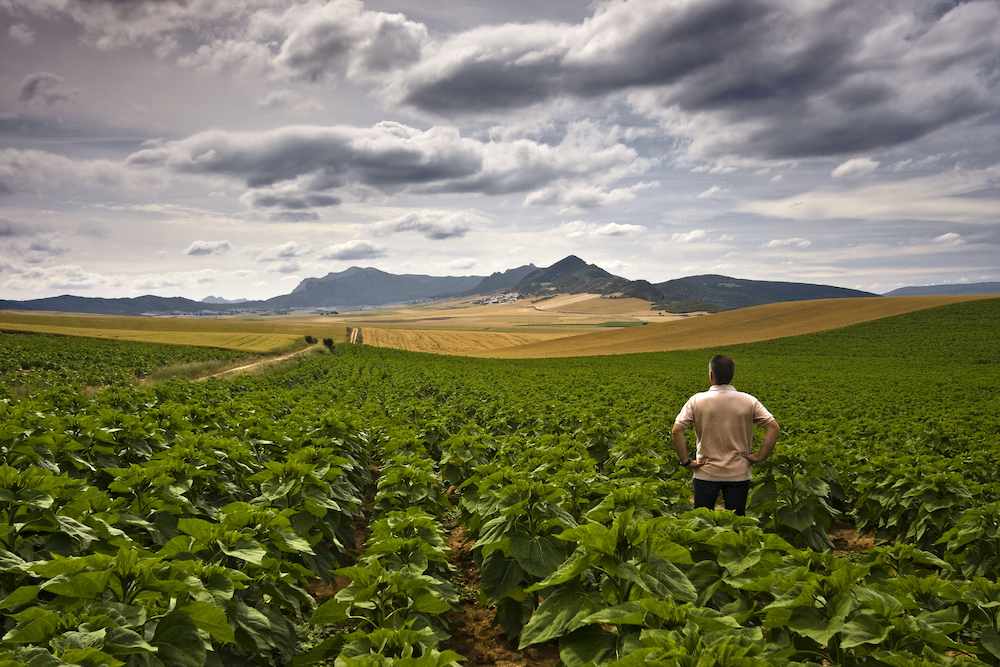Opinion: agricultural biotechnology and Africa’s strategic interests

By Harvard Kennedy School Practice of International Development professor Calestous Juma
 Global food politics is riddled with paradoxes. While threats to global food security are becoming increasingly evident, efforts to stall the adoption of new technologies appear to intensify.
Global food politics is riddled with paradoxes. While threats to global food security are becoming increasingly evident, efforts to stall the adoption of new technologies appear to intensify.
There is a clear disconnect between comfort with familiar agricultural practices and the food challenges that lie ahead. Though food is recognized as a national security issue, it has yet to acquire the strategic importance it deserves, especially in African countries. The lack of strategic thinking underlies many of the poor decisions that many African countries make regarding agricultural biotechnology.
The world food outlook for 2013 has been the subject of grim forecasts based on evidence of drought in the United States and other regions of the world. But amid these concerns countries such as Kenya have taken the unusual decision to ban the importation of genetically modified (GM) food pending further information on their safety.
Part of the anxiety appears to have been driven by a recent French study that mice allegedly developed tumors after being fed GM foods. The study has been dismissed as fundamentally flawed by several national food safety agencies across Europe as well as the European Food Safety Authority.
The U.S. drought and the likely political ramifications serve as reminder of the urgency for African nations to define the use of emerging agricultural technologies as a central part of their national security.
The history of India offers a vivid example of this kind of long-term thinking. Faced with concerns over the political ramifications of another major famine, India made a decision to adopt the Green Revolution in the 1960s. Without this bold decision, India’s agricultural production would not have met rising demand whose outcome would most likely have been political unrest. At the time, the Green Revolution was largely an unproven technology with known risks. But India took a gamble and sought to balance between the risks of the new technology and threat of political instability. Making courageous decisions is what leadership is about.
Today’s food threats are more challenging. These include a rapidly expanding population, loss of productivity due to ecological disruptions, persistent famines, and climate change. The technologies available to India in the 1960s can hardly be counted on to provide long-term food security for African countries.
For these reasons, Africa’s precautionary approaches to biotechnology are not only misguided but they expose the continent to long-term political risks. The issue is no longer a simplistic argument about becoming an importer of GM foods; it is about building up the requisite capacity to diversify the technological options needed for long-term agricultural adaptation.
Biotechnology offers Africa a wider range of economic opportunities than the Green Revolution did. It is already being used to improve food production and establish or revive cotton production. Its economic impact is therefore likely to go well beyond the farm sector to include industrial development.
India did not have much evidence to go on when it adopted the Green Revolution. Africa’s decisions can be guided by 17 years of commercial use of the technology. Agricultural biotechnology is already being used by nearly 17 million farmers growing crops on over 160 million hectares in 29 countries.
The 29 countries growing GM crops span across the world and provide new opportunities for African countries to create new trading alliances. These countries include both industrialized nations and emerging markets.
New trading agreements with leading biotechnology nations will help Africa build technological capacity in critical life sciences fields that can also be deployed in health and environmental management. The strategic value of such cooperation will go beyond the narrow objective of meeting food needs and create a basis for new technology partnerships.
To think and act strategically about these issues requires continuous science and technology advice to high-level leaders. Many of the biotechnology decisions made by African countries are usually politically motivated and do not reflect the balance of scientific evidence. African leaders will be better served by appointing chief science and technology advisors. To date no single African president is supported by a chief scientific advisor. This makes it easy for the leaders to be bamboozled by political and diplomatic mischief makers into making hasty or ill-informed decisions.
Guided by good science and technology advice, the choices open to African leaders are clear. Doing nothing, especially in an age of worsening food prospects, is no longer an option. The time has come for African nations to start focusing on their long-term strategic interests. Biotechnology is not simply a matter of rhetorical debate guided by short-term interests. It is central to how African countries define their place in the global knowledge ecology.
This column was originally published on the Chicago Council on Global Affairs' Global Food for Thought blog.
Related article: Africa pushes for genetically modified food ban





































